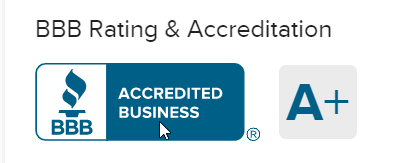High employee turnover can be costly and disruptive for any organization. One of the most effective strategies for improving employee retention is by fostering a strong culture of core values. This informative Gratitudes Group blog explores how core values contribute to employee retention and what companies can do to strengthen this aspect of their workplace culture.
The Role of Core Values in Retention
Core values play a crucial role in shaping the overall employee experience. When employees resonate with the company’s values, they are more likely to feel connected to the organization and committed to its success. This alignment reduces turnover and increases employee loyalty.
Core values provide a sense of purpose and direction for employees. They help create a cohesive work environment where employees feel valued and appreciated. Employees who believe in the company’s mission and values are more likely to stay with the organization for the long term.
Recruiting with Core Values in Mind
Retention starts with the hiring process. By clearly communicating core values in job descriptions and during interviews, companies can attract candidates who are more likely to be a good fit. Gratitudes Group uses this proactive approach to help ensure that new hires are aligned with the company’s culture from the outset.
During the recruitment process, assessing candidates’ alignment with the company’s values is essential. Behavioral interview questions can help gauge how candidates’ values and behaviors align with the organization’s culture. For example, ask candidates about their experiences working in diverse teams or how they handle ethical dilemmas.
Onboarding and Integration
Effective onboarding is essential for reinforcing core values and setting the stage for long-term retention. During the onboarding process, new employees should be immersed in the company’s culture and values. Regular check-ins and feedback sessions can help identify any alignment issues early on and address them promptly.
Onboarding should include comprehensive training on the company’s values, mission, and expectations. New hires should be given opportunities to interact with different teams and participate in activities that reflect the company’s culture. This immersive experience helps new employees feel connected and engaged from the start.
Recognition and Rewards Programs
Recognition and rewards programs are powerful tools for reinforcing core values and improving retention. Organizations can create a positive and motivating work environment by recognizing employees who exemplify the company’s values. These programs should be designed to reward behaviors that align with the company’s values, ensuring that employees feel valued and appreciated.
Rewards programs can include both monetary and non-monetary incentives. For example, employees who demonstrate exceptional commitment to the company’s values could receive bonuses, gift cards, or additional time off. Non-monetary rewards, such as public recognition or special privileges, can also be highly effective.
Performance Reviews and Continuous Feedback
Regular performance reviews that include cultural fit assessments and alignment with core values are crucial for retention. These reviews should provide constructive feedback and recognize employees’ contributions to maintaining the company’s culture. Continuous feedback helps employees stay engaged and committed to the organization.
Performance evaluations should focus on both job performance and cultural alignment. Employees should be encouraged to provide feedback on their experiences and suggest improvements. This two-way communication helps create a culture of trust and transparency.
The Role of Leadership
Leadership plays a critical role in improving employee retention through core values. Leaders should model the company’s values in their behavior and decision-making. They should also proactively address any issues that may arise and provide support and guidance to their teams.
Leaders should regularly communicate the importance of the company’s values and provide opportunities for employees to share their thoughts and feedback. This open communication helps create a sense of belonging and ensures employees feel heard and valued.
Conclusion
Core values are a powerful tool for improving employee retention. By embedding these values into every stage of the employee lifecycle—from recruitment to performance reviews—companies can create a cohesive and committed workforce. This alignment not only reduces turnover but also enhances overall organizational success. A strong culture of core values ensures that employees remain engaged, motivated, and aligned with the organization’s mission. Gratitudes Group is here to help when you are ready to improve employee retention with a core values led program.








